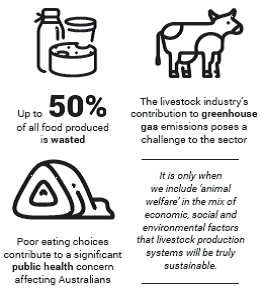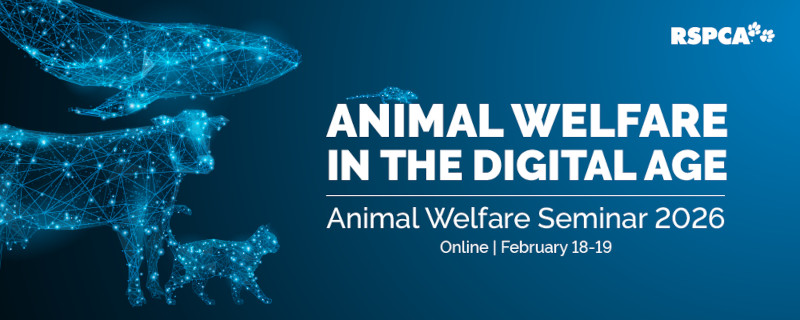In the debate about feeding a growing world population and in which livestock industries often see an opportunity to increase the scale or the intensity of their operations, rarely is consideration given to the effect this might have on farm animal welfare.
Livestock farming practices can adversely impact welfare by failing to provide animals with their basic needs. If we are to raise animals for food or fibre, surely we can do so without compromising their welfare?
Regardless of the farming system, at some point animal welfare may be compromised. Poor animal welfare may have several causes, e.g. it may be due to chronic stress as a result of intensive confinement, or it might be acute pain during an invasive procedure. We feed antibiotics prophylactically, we give hormones to make animals grow faster and bigger, we give hormones to induce birth, and we give other additives that promote leanness.
In some industries, whether you are male or female determines whether you live a productive life or are considered a waste product. Breeding for productivity rather than robustness, health and longevity can have poor animal welfare outcomes, as can poor stockmanship and animal handling skills. And what about the suffering of livestock on marginal or drought-stricken lands where feed is minimal at best?

We should work together towards achieving a sustainable livestock production system that sees no party disadvantaged – least of all the animals we farm for food. An alternative supply chain is required. One that:
- is supported by a government that takes a leadership role in animal welfare
- is supported by a government that recognises the importance of productive land, access to water and renewable resources to the production of food
- acknowledges that food production and consumption should avoid negative environmental, health or social impacts
- is research-driven and innovative in its use of technology recognises that food is valuable
- recognises that food waste is an unacceptable consequence of food production
- pays farmers a fair price for the food they produce
- believes good animal welfare is an inherent part of livestock production and provides animals with a life worth living.
Bibliography
- Australian Government Department of Agriculture and Water Resources (2015) Livestock emissions.
- Australian Institute of Health and Welfare (n.d.) Overweight and obesity.
- Australian Organic (2014) Australian Organic Market Report 2014.
- FAO (2013) Tackling climate change through livestock – A global assessment of emissions and mitigation opportunities.
- FAO (n.d.) Food loss and food waste.
- FAO (n.d.) Meat and meat products.
- Foodwise (n.d.) Fast facts on food waste.
- Government of Western Australia Department of Agriculture and Food (n.d.) Carbon farming and livestock emissions.
- International Agency for Research on Cancer (2015) Carcinogenicity of consumption of red and processed meats.
- Mellor DJ, Beausoleil NJ, (2015) Extending the ‘Five Domains’ model for animal welfare assessment to incorporate positive welfare states.
- National Health and Medical Research Council (2013) Australian Dietary Guidelines.
- National Heart Foundation of Australia (2013) Heart information: Your heart.
- UN Department of Economic and Social Affairs (2013) World population projected to reach 9.6 billion by 2050.

